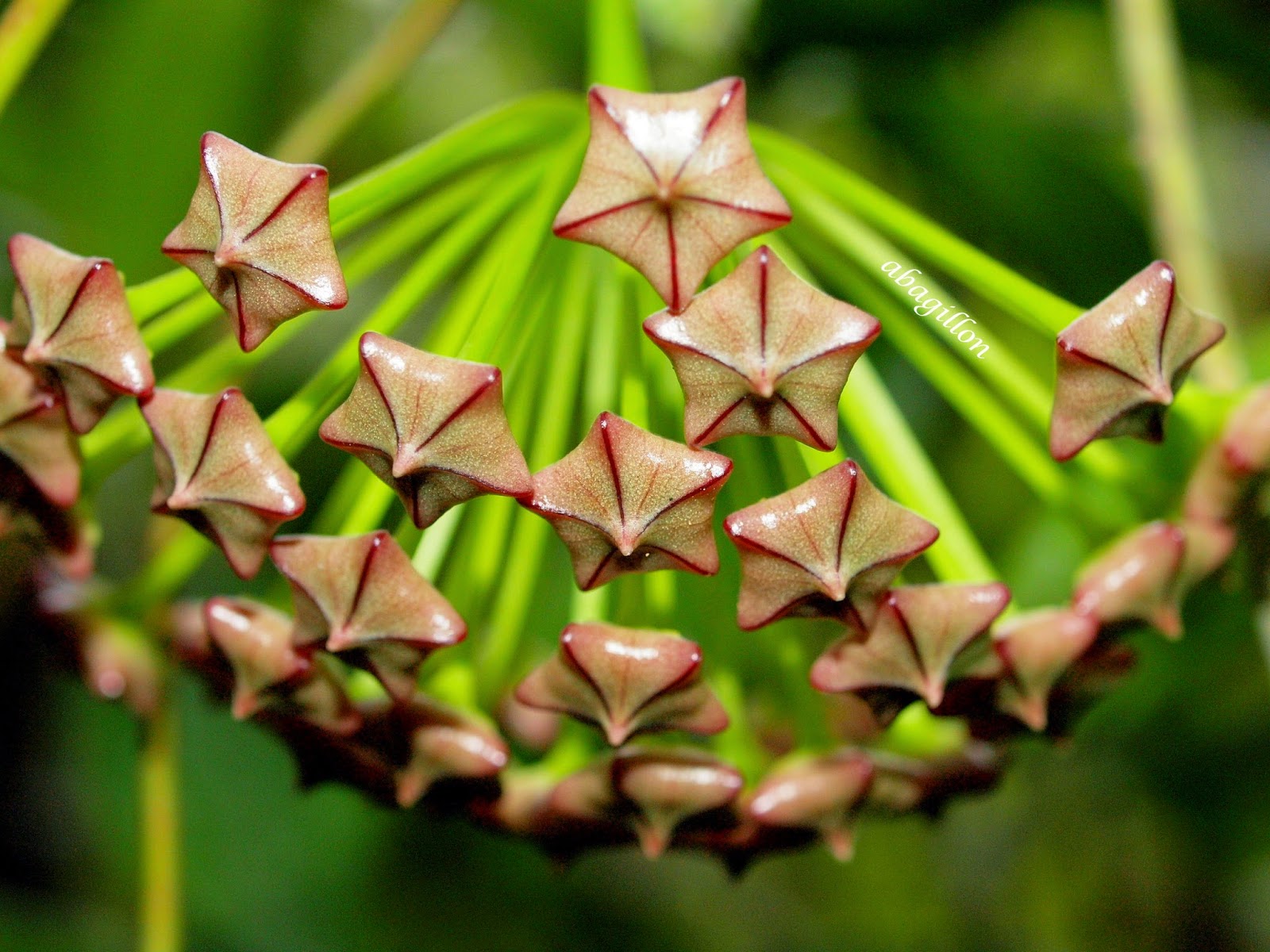It has a few color forms, and i choose the yellow with purplish hue to post here.
They all hang downward pointing to the ground, technically called positively geotropic. into a flat umbel such as this one. This however, was shot at the bottom looking up. When a few of them are open it is very fragrant around our garden, reaching the terrace nearby. Having coffee at the terrace in the afternoon is made very dramatic by the hoya perfume coming from the nearby garden. Some describe the scent as slightly spicy, i call it perfumy sweet. And if a lot of hoyas are in bloom, it is indiscribably fragrant near our house. Isn't it amazing to be taking some pastries and coffee, looking at the roaming butterflies, and the air is full of wonderful fragrance! Please visualize it, and you will agree with me!
Most of the hoyas start opening in the late afternoon, to preempt the pollinators which are usually nocturnal insects. In the above photo, the flowers are just starting to open, those corolla will totally flex back in what they term as revolute, showing the inside portion lined with hairs.
These are still unopened flowers, with prominently darker colors and very attractive pedicels.




























